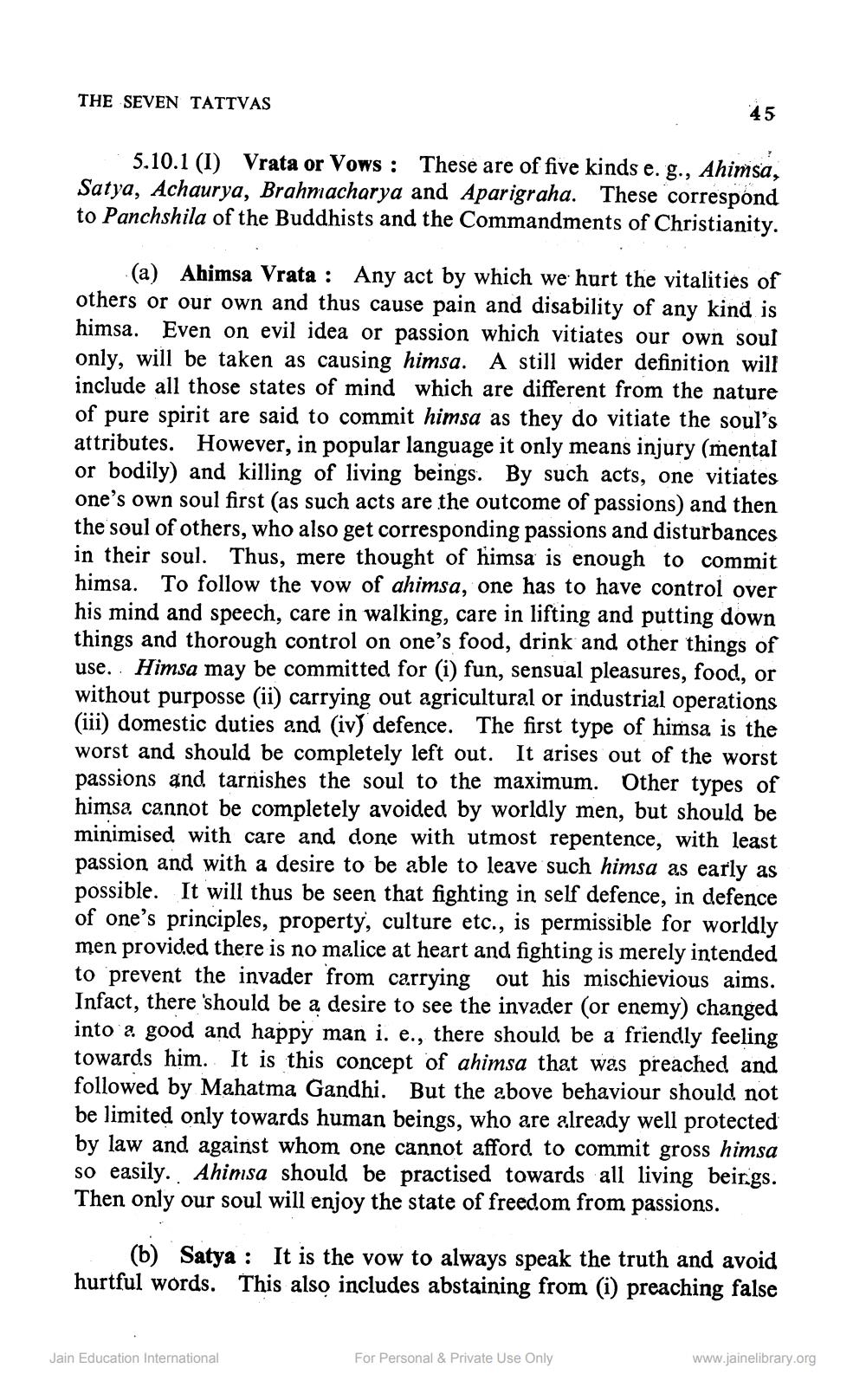________________
THE SEVEN TATTVAS
45
5.10.1 (1) Vrata or Vows : These are of five kinds e. g., Ahimsa, Satya, Achaurya, Brahmacharya and Aparigraha. These correspond to Panchshila of the Buddhists and the Commandments of Christianity.
(a) Ahimsa Vrata : Any act by which we hurt the vitalities of others or our own and thus cause pain and disability of any kind is himsa. Even on evil idea or passion which vitiates our own soul only, will be taken as causing himsa. A still wider definition will include all those states of mind which are different from the nature of pure spirit are said to commit himsa as they do vitiate the soul's attributes. However, in popular language it only means injury (mental or bodily) and killing of living beings. By such acts, one vitiates one's own soul first (as such acts are the outcome of passions) and then the soul of others, who also get corresponding passions and disturbances in their soul. Thus, mere thought of himsa is enough to commit himsa. To follow the vow of ahimsa, one has to have control over his mind and speech, care in walking, care in lifting and putting down things and thorough control on one's food, drink and other things of use. Himsa may be committed for (i) fun, sensual pleasures, food, or without purposse (ii) carrying out agricultural or industrial operations (iii) domestic duties and (iv) defence. The first type of himsa is the worst and should be completely left out. It arises out of the worst passions and tarnishes the soul to the maximum. Other types of himsa cannot be completely avoided by worldly men, but should be minimised with care and done with utmost repentence, with least passion and with a desire to be able to leave such himsa as early as possible. It will thus be seen that fighting in self defence, in defence of one's principles, property, culture etc., is permissible for worldly men provided there is no malice at heart and fighting is merely intended to prevent the invader from carrying out his mischievious aims. Infact, there should be a desire to see the invader (or enemy) changed into a good and happy man i. e., there should be a friendly feeling towards him. It is this concept of ahimsa that was preached and followed by Mahatma Gandhi. But the above behaviour should not be limited only towards human beings, who are already well protected by law and against whom one cannot afford to commit gross himsa so easily. Ahimsa should be practised towards all living beir.gs. Then only our soul will enjoy the state of freedom from passions.
(b) Satya : It is the vow to always speak the truth and avoid hurtful words. This also includes abstaining from (i) preaching false
Jain Education International
For Personal & Private Use Only
www.jainelibrary.org




